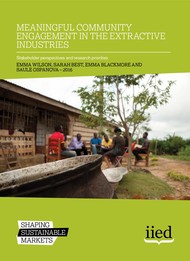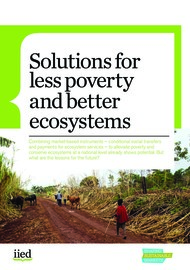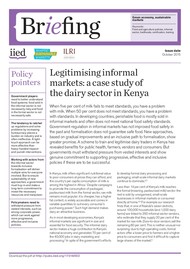Balancing carrots and sticks: incentives for sustainable hilsa fishery management in Bangladesh

Fisheries play an important role in meeting global food demands. But coastal fisheries are in decline due to overfishing – and fisheries management in developing world countries is also complicated by significant poverty levels. In response, fisheries managers are increasingly using economic incentive-based approaches to reward beneficiaries – such as fishers – for complying with legislation aimed at sustainably managing the resource.
One of the rare examples of both mismanagement and restoration of fisheries using an economic-incentive mechanism is Bangladesh’s most important single-species fishery: hilsa. In 2004, a scheme was developed to support hilsa management in Bangladesh. But inadequacies were identified with the regulatory framework and the compensation scheme. This synthesis report is the outcome of a Darwin Initiative-funded project which has sought to improve the effectiveness of the incentive-based hilsa management scheme. It assesses the current ecological and socio-economic dynamics of hilsa fishery management in Bangladesh. The outcomes and recommendations should be of much use in hilsa fisheries management and improving the livelihoods of fishing communities.
Follow the link to the project information below for more information on Shaping Sustainable Markets.
Cite this publication
Available at https://www.iied.org/16619iied






